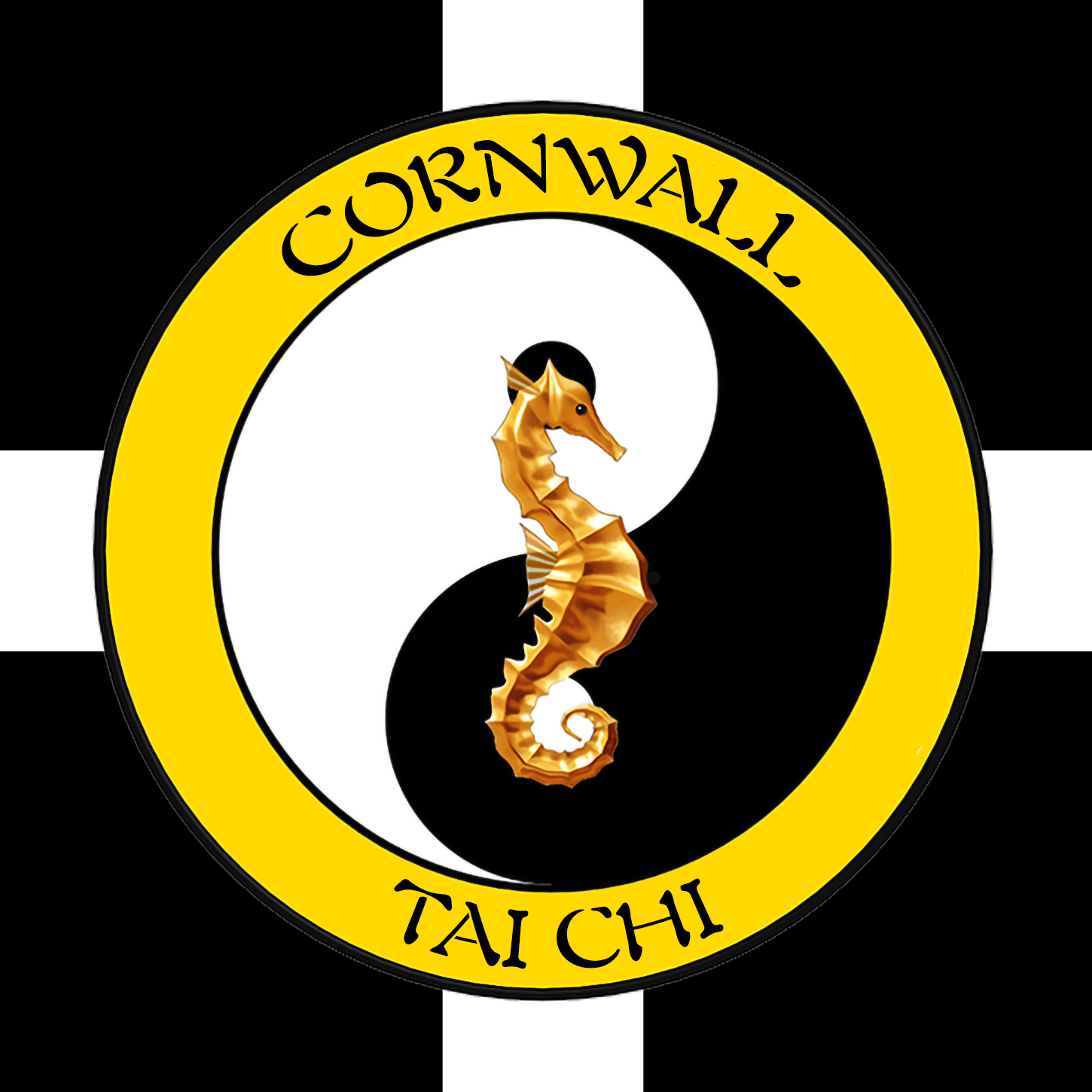
Qi is a fundamental concept in Chinese culture and traditional medicine. Everything is composed of Qi, solids, liquids, gasses, rarefied energy forms like electromagnetism, light, and plasma, in fact, the entire Universe is composed of Qi.
However, the kind of Qi that is of primary importance in Tai Chi is your own personal Qi which can be thought of as a kind of battery pack inside you that is constantly supplying your body mind, and spirit with energy. This is the Qi that is referred to in the Neijing or Yellow Emperor’s classic of internal medicine, the classic of ancient Chinese medicine, often translated as “life force” or “vital energy,” and is the vital essence of all living things. According to traditional Chinese medicine, Qi flows through the body along specific pathways known as jingluo (经络) or meridians which are associated with the internal organs. Qi is also stored in vessels throughout the body that act as reservoirs or energy buffers. When Qi is flowing freely, a person is healthy and balanced. When Qi is blocked or deficient, mental, physical and spiritual illness and disease can occur.
In Tai Chi, Qi is often described as the energy that powers the movements of the body. It flows through the body in a smooth and continuous manner, creating a sense of internal harmony and balance. The goal of Tai Chi practice is to cultivate and harmonize Qi, allowing it to flow freely throughout the body.
The Three Treasures
In traditional Chinese medicine, Jing, Qi and Shen are three fundamental substances known as The Three Treasures.
Jing is the stored essence of the body, including the bones, marrow, and reproductive fluids. Jing is stored in the kidneys and can also be found in the bone marrow, the brain, and the energy meridians, especially the extraordinary vessels or eight extra meridians which act as buffers for the Qi.
Qi is ruled by the lungs, it is derived from Clean air Qi, Food Qi, and Ancestral Qi also known as kidney Yin or Jing (Essence). The lungs also produce Wei Qi which is a special layer of defensive Qi that protects the outer surface of the body from invasion by pathogenic factors.
Shen is the spirit or consciousness, including emotions, thoughts, and perceptions. Shen is stored in the Heart and is composed of five Shens, each of which resides in a particular organ. These five aspects of Shen are associated with the five elements (water, wood, fire, earth, and metal) and have emotional qualities that correspond to each element. For example, the Shen associated with the Liver is associated with the Wood element and is believed to influence emotions such as anger, frustration, and creativity. Similarly, the Shen associated with the Kidneys is associated with the Water element and is believed to influence emotions such as fear, wisdom, and willpower.
The three treasures are intimately connected, and each one affects the others. For example, when Jing is strong and healthy, it can support the cultivation of Qi and Shen. When Qi is flowing freely, it can nourish Jing and support the health of the body. When Shen is calm and peaceful, it can help to harmonize Qi and Jing.
In Tai Chi, the cultivation of Qi is seen as a way to harmonize and balance all three treasures, leading to improved health and well-being.
Cultivating Qi
There are many ways to cultivate Qi in Tai Chi practice. Here are some key principles to keep in mind:
- Relaxation: Tai Chi and Qigong movements should be performed in a relaxed and fluid manner. The body should be relaxed but also the mind. Avoiding using force or muscle power. Tension in the body can block the flow of Qi, so it is important to let go of any unnecessary tension.
- Breathing exercises: The breath is closely connected to Qi. In Tai Chi, the breath should be slow, deep, and relaxed, with an emphasis on exhaling fully to release stale air and toxins from the body. Deep breathing expands the lung capacity and the lungs draw energy into the body from the air so more capacity means more Qi. Also, deep breathing stimulates and massages the internal organs and this improves their ability to supply Qi.
- Concentration: Tai Chi is often described as a moving meditation. It is important to focus the mind on the movements and sensations of the body, allowing distractions to fade away. Where the mind goes the Qi follows so concentrating on the Tai Chi movements helps guide Qi around the body and improves the blood flow.
- Chang Ming Taoist diet – Eating fresh, organically grown whole foods that are in season and are high in nutrients can nourish the body and promote healthy qi. Some foods tax the digestive system and so less Qi is then derived from food. So junk foods, processed foods, additives, flavourings, colourings and preservatives all create a toxic residue in your body and it takes energy to eliminate it. These toxins also clog up the meridians, the organs and the blood vessels and so prevent Qi from flowing. Overeating increases obesity and this means carrying more weight around. The increase in body size means blood has to flow further and work harder to keep everything supplied with energy so only eat the necessary amounts and don’t overeat. Food is meant to supply the body with Qi and not as a form of entertainment.
- Massage – Anmo is a type of energy meridian massage we use in our Health and Massage classes. The internal organs create Qi in the body from three sources, Food Qi, Clean air Qi, and ancestral Qi which is stored in the body and inherited from our forebears. The energy meridians are connected to the organs and massaging them stimulates the energy flow from the meridian and around the body. Also loosening up the muscles and tendons helps Qi and blood to reach every part of the body, blood flow is important too because Qi is also contained in the blood.
- Emotions – In Chinese medicine emotions are a cause of imbalance in the organs. Suppressed emotions can build up in the body and cause problems when they resurface later on. Also, excessive emotions damage the organs and make the energy flow erratic. Recognizing the causes of emotional outbursts and learning relaxation techniques to balance emotional states will improve the storage of Qi.
- Nature. For maximum Qi development do Tai Chi outside, preferably under a tree, this is where there is more Li or macrocosmic energy available to be absorbed and mixed with your own personal Qi. There is Qi that flows through your body from external sources, it comes up from the Earth and also down from the Sky above your head. If you stay indoors a lot you will find this supplementary energy gets masked and you get sick and run down more often.
Benefits of Cultivating Qi in Tai Chi Practice
Cultivating Qi in Tai Chi practice can have many benefits for your physical, mental, and emotional health. Here are just a few examples:
- Improved Energy: When Qi is flowing freely, it can increase energy levels and reduce fatigue.
- Reduced Stress: Tai Chi practice has been shown to reduce stress and anxiety, which can be beneficial for overall health and well-being.
- Improved Balance: Tai Chi movements are slow and deliberate, which can improve balance and reduce the risk of falls, especially in older adults.
- Enhanced Immune Function: Cultivating Qi can boost the immune system, helping to prevent illness and disease.
In conclusion, the cultivation of Qi is an essential element of Tai Chi practice. Cultivating Qi can improve physical, mental, and emotional health, and is a key factor in the overall benefits of Tai Chi. By incorporating principles such as relaxation, breath control, mindfulness, and visualization into your Tai Chi practice, you can enhance the flow of Qi throughout your body and reap the many benefits that come with it.
If you’re interested in learning more about Tai Chi and how to cultivate Qi, consider joining a Tai Chi class. A skilled instructor can guide you through the movements and help you develop a deeper understanding of the role of Qi in Tai Chi practice. With regular practice and dedication, you can unlock the power of Qi and experience the many benefits that Tai Chi has to offer.

